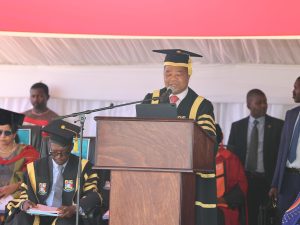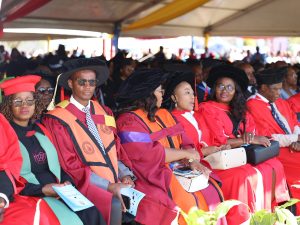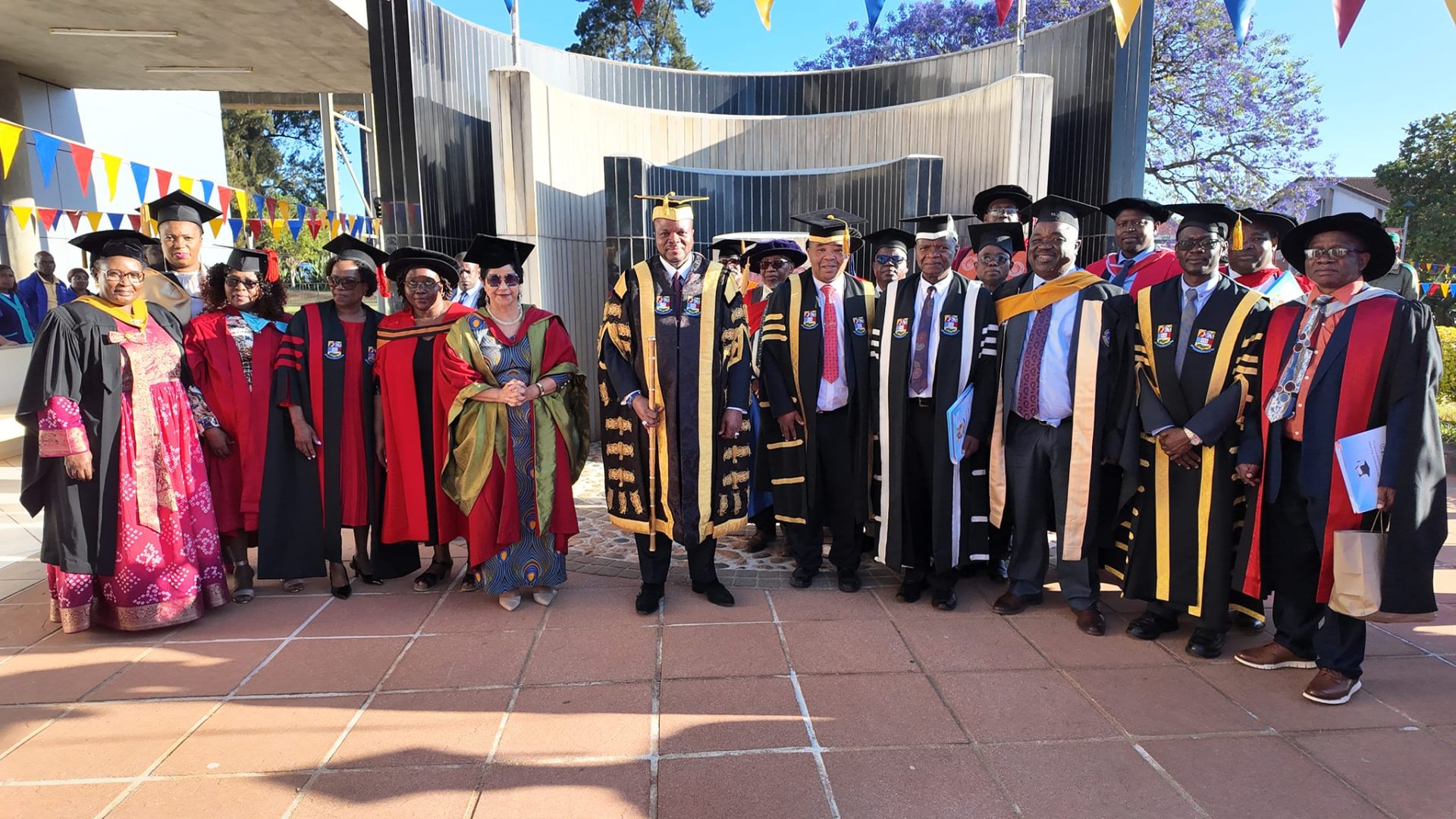By Ncaba Ntshakala
University of Eswatini Vice Chancellor, Professor Justice Thwala, has hailed King Mswati III for transforming an entrenched cultural mindset within the Kingdom of Eswatini.
Speaking at the institution’s 42nd graduation ceremony, Thwala praised the King for introducing a new paradigm in Eswatini’s development narrative, shifting away from the long-held belief that “there is no hurry in Eswatini.
” According to Thwala, this outdated perception has been replaced by a fresh approach, encapsulated in the concept of Nkwe, which emphasizes efficiency and timely execution of processes for sustainable growth.
“In the spirit of preserving and creating culture in the Kingdom of Eswatini, His Majesty has changed an old narrative in the country that there is no hurry in Eswatini,” said Thwala.
“The new narrative is that of Mkwe, which is a new approach meant to hasten processes for timely and sustainable development within the Kingdom of Eswatini.
Your Majesty, these national events have helped not only to foster peace, unity, and a sense of belonging within the Kingdom,
RELATED: King commands University of Eswatini Graduates to ‘hit the ground running’
but they have also contributed to the genesis of such new cultural narratives through His Majesty’s vision, while preserving and creating a rich ethno- and Afrocentric culture that is to be cherished by the present and future generations.”
Thwala further highlighted the cultural importance of the Kingdom’s national events, such as faith-based celebrations and traditional dances, which continue to unite the nation and enhances a collective identity.
He extended his appreciation to King Mswati III for orchestrating these events and for his commitment to preserving Eswatini’s cultural heritage while steering the nation towards modern progress.

The Vice Chancellor also reflected on the strides made by the University of Eswatini, particularly in producing highly skilled human capital, which he referred to as the “key driver to sustainable development.”
Thwala pointed out that the number of PhD graduates has been steadily rising since the first doctoral graduands emerged from the Faculty of Agriculture in 2017.
The university, he noted, continues to provide top-tier education and research, aligning its strategic vision with the national and international developmental needs.
“The mandate of the University is to produce highly skilled human capital for the Kingdom of Eswatini and beyond.
RELATED: Eswatini’s Greatest Asset: Empowering Youth for a Brighter Future
Research has shown that highly skilled human capital is the key driver to sustainable development of a country,” Thwala said.
“This year, the University is graduating a total of 1,250 students, which includes 183 certificate holders, 17 diploma recipients, 999 bachelor’s degrees, 50 master’s degrees, and one PhD.”
In a show of gratitude, Thwala acknowledged the significant support provided by the Eswatini Government, particularly in the area of education.
He highlighted that the government had increased its scholarship provision from an annual average of 1,200 to 1,575 this year.
The Vice Chancellor also applauded the government’s financial support for the University’s capital expansion and operational needs, especially during challenging times that have affected the availability of teaching tools, infrastructure, and staff benefits.
Thwala outlined how the University is responding to the King’s directive to strengthen research, innovation, and enterprise.
A significant initiative in this regard is the establishment of the Artificial Intelligence Academy through the Faculty of Science and Engineering.

This initiative, he noted, aligns with UNESCO’s strategic plan and is intended to leverage AI for economic development, skills enhancement, and global competitiveness.
The University has also initiated collaborative efforts, including a student exchange program with AFLIN University and partnerships aimed at supporting women and youth participation in the African Continental Free Trade Area (AfCFTA).
Additionally, Thwala highlighted progress in the University’s demand-driven programs, such as the postgraduate diploma in public sector accounting and the new degrees being developed in fields like actuarial science, critical care nursing, and operations management.
These programs are aimed at equipping students with the skills necessary for thriving in the modern economy.
Furthermore, Thwala made emphasis on the University’s commitment to working with various stakeholders, including the Ministry of Education and Training and international partners like UNESCO, to advance Eswatini’s educational and developmental goals.
The Vice Chancellor praised the establishment of research centres and technological advancements, such as the Eswatini Institute for Research in Traditional Medicine, which is making strides in developing complementary medicine for HIV/AIDS management based on indigenous knowledge systems.
Through these initiatives, Thwala emphasized, the University of Eswatini continues to align with the Kingdom’s major aspirations of becoming a knowledge-driven economy, supporting the socio-economic development of Eswatini while preserving its rich cultural heritage


